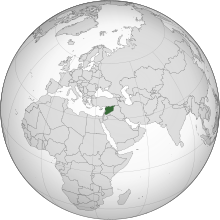
Lesbian, gay, bisexual and transgender (LGBT) people in Iran face severe challenges not experienced by non-LGBT residents. Sexual activity between members of the same sex is illegal and can be punishable by death, and people can legally change their assigned sex only through a sex reassignment surgery. Currently, Iran is the only country confirmed to execute gay people, though death penalty for homosexuality might be enacted in Afghanistan.

Lesbian, gay, bisexual, and transgender (LGBT) people in Saudi Arabia face challenges not experienced by non-LGBT residents. The government of Saudi Arabia provides no legal protections for LGBT rights. Both male and female same-sex sexual activity is illegal within the country.

Lesbian, gay, bisexual, and transgender (LGBT) people in the Islamic Emirate of Afghanistan face severe challenges not experienced by non-LGBT residents. Afghan members of the LGBT community are forced to keep their gender identity and sexual orientation secret, in fear of violence and the death penalty. The religious nature of the country has limited any opportunity for public discussion, with any mention of homosexuality and related terms deemed taboo.

Lesbian, gay, bisexual, and transgender (LGBT) people in Egypt face severe challenges not experienced by non-LGBT residents. There are reports of widespread discrimination and violence towards openly LGBT people within Egypt, with police frequently prosecuting gay and transgender individuals.
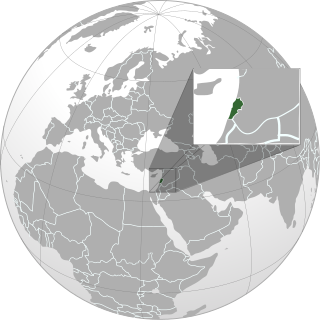
Lesbian, gay, bisexual, and transgender (LGBT) people living in Lebanon may face discrimination and legal difficulties not experienced by non-LGBT residents and are heavily looked down upon by society. Various courts have ruled that Article 534 of the Lebanese Penal Code, which prohibits having sexual relations that "contradict the laws of nature", should not be used to arrest LGBT people. Nonetheless, the law is still being used to harass and persecute LGBT people through occasional police arrests, in which detainees are sometimes subject to intrusive physical examinations.

Lesbian, gay, bisexual, and transgender (LGBT) people in Tunisia face legal challenges not experienced by non-LGBT residents. Both male and female kinds of same-sex sexual activity are illegal in the country. According to the United States Department of State's 2018 report on human rights in Tunisia, "authorities occasionally use [the anti-sodomy law] to detain and question persons about their sexual activities and orientation, reportedly at times based on appearance alone."

Lesbian, gay, bisexual, and transgender (LGBT) people in Armenia face legal and social challenges not experienced by non-LGBT residents, due in part to the lack of laws prohibiting discrimination on the grounds of sexual orientation and gender identity and in part to prevailing negative attitudes about LGBT persons throughout society.

Lesbian, gay, bisexual, and transgender (LGBT) rights in Argentina rank among the highest in the world. Upon legalising same-sex marriage on 15 July 2010, Argentina became the first country in Latin America, the second in the Americas, and the tenth in the world to do so. Following Argentina's transition to a democracy in 1983, its laws have become more inclusive and accepting of LGBT people, as has public opinion.

Lesbian, gay, bisexual, and transgender (LGBT) people in Pakistan face legal and social difficulties compared to non-LGBT persons. Pakistani law prescribes criminal penalties for same-sex sexual acts.
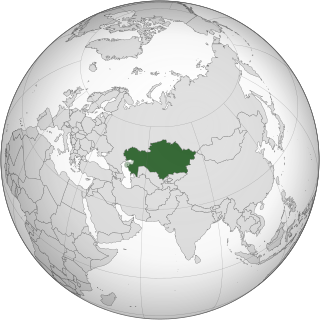
Lesbian, gay, bisexual, and transgender (LGBT) people in Kazakhstan face significant challenges not experienced by non-LGBT residents. Both male and female kinds of same-sex sexual activity are legal in Kazakhstan, but same-sex couples and households headed by same-sex couples are not eligible for the same legal protections available to opposite-sex married couples.

Lesbian, gay, bisexual, transgender, and queer (LGBTQ) people in Bangladesh face widespread social and legal challenges not experienced by non-LGBTQ people. Homosexuality is illegal under Bangladeshi law, which is inherited from the colonial British Indian government's Section 377 of 1860. According to the law, the punishment for engaging in same-sex sexual activities is imprisonment.

Lesbian, gay, bisexual, and transgender (LGBT) people in Malaysia face severe challenges not experienced by non-LGBT residents. Sodomy is a crime in the country, with laws enforced arbitrarily. Extrajudicial murders of LGBT people have also occurred in the country. There are no Malaysian laws that protect the LGBT community against discrimination and hate crimes. As such, the LGBT demographic in the country are hard to ascertain due to widespread fears from being ostracised and prosecuted, including violence.
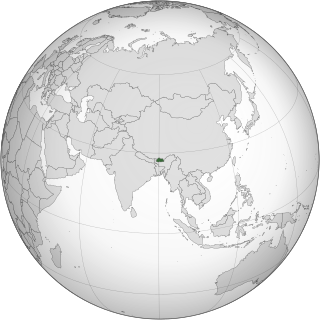
Lesbian, gay, bisexual and transgender (LGBT) people in Bhutan face legal challenges that are not faced by non-LGBT people. Same-sex sexual activity was decriminalised in Bhutan on 17 February 2021.

Lesbian, gay, bisexual, and transgender (LGBT) people in Somalia face severe challenges not experienced by non-LGBT residents. Consensual same-sex sexual activity is illegal for both men and women. In areas controlled by al-Shabab, and in Jubaland, capital punishment is imposed for such sexual activity. In other areas, where Sharia does not apply, the civil law code specifies prison sentences of up to three years as penalty. LGBT people are regularly prosecuted by the government and additionally face stigmatization among the broader population. Stigmatization and criminalisation of homosexuality in Somalia occur in a legal and cultural context where 99% of the population follow Islam as their religion, while the country has had an unstable government and has been subjected to a civil war for decades.

Lesbian, gay, bisexual, transgender, intersex, non-binary and otherwise queer, non-cisgender, non-heterosexual citizens of El Salvador face considerable legal and social challenges not experienced by fellow heterosexual, cisgender Salvadorans. While same-sex sexual activity between all genders is legal in the country, same-sex marriage is not recognized; thus, same-sex couples—and households headed by same-sex couples—are not eligible for the same legal benefits provided to heterosexual married couples.
The initialism LGBT is used to refer collectively to lesbian, gay, bisexual, and transgender (LGBT) people and members of the specific group and to the community (subculture) that surrounds them. This can include rights advocates, artists, authors, etc.
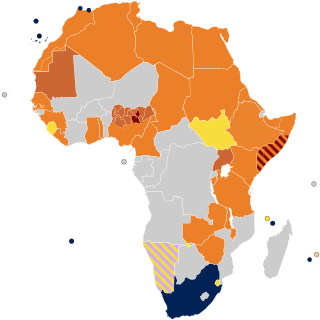
Lesbian, gay, bisexual, and transgender (LGBT) rights in Africa are in most countries very poor in comparison to the Americas, Western Europe and Oceania.

Lesbian, gay, bisexual, and transgender (LGBT) people in Guatemala face legal challenges not experienced by non-LGBT residents. Both male and female forms of same-sex sexual activity are legal in Guatemala.

Lesbian, gay, bisexual and transgender (LGBT) people in Liberia face legal and social challenges which others in the country do not experience. LGBT people in Liberia encounter widespread discrimination, including harassment, death threats, and at times physical attacks. Several prominent Liberian politicians and organizations have campaigned to restrict LGBT rights further, while several local, Liberian-based organizations exist to advocate and provide services for the LGBT community in Liberia. Same-sex sexual activity is criminalized regardless of the gender of those involved, with a maximum penalty of three years in prison, and same-sex marriage is illegal.

Abdulrahman Akkad is a Syrian political blogger, public speaker and human rights activist. He currently resides in Berlin.
